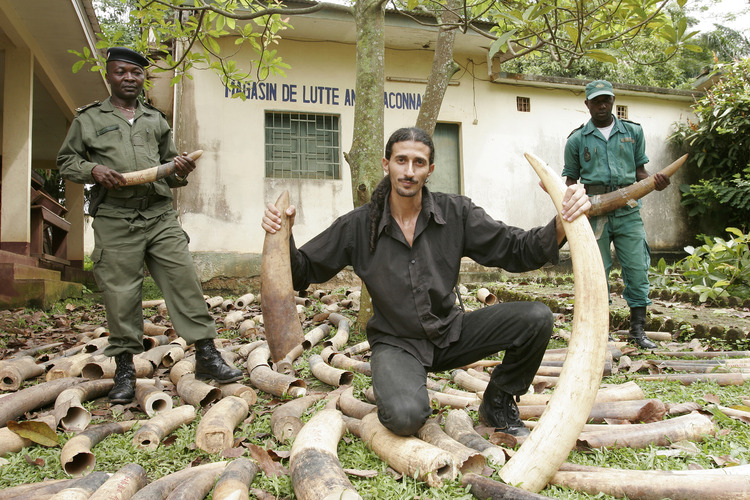It all began with a baby chimpanzee orphaned by a poacher in Cameroon. Tel Aviv native Ofir Drori, intending to do some investigative journalism after finishing his Israeli army service, adopted the grieving chimp and named him Future.
Drori discovered that Cameroon’s wildlife trafficking laws had never once been enforced, due to corruption along the entire chain from wildlife officers to magistrates.
No world wildlife conservation organization was tackling this issue, so Drori remained in Cameroon and in 2003 founded the Last Great Ape Organization, the world’s first law-enforcement NGO.
The dangerous work involves teams of undercover agents and legal experts who guide sting operations to catch traffickers of live animals, tusks, pelts, teeth, shells and so on. The NGO even makes daily jail visits to ensure the criminals haven’t bribed their way out.
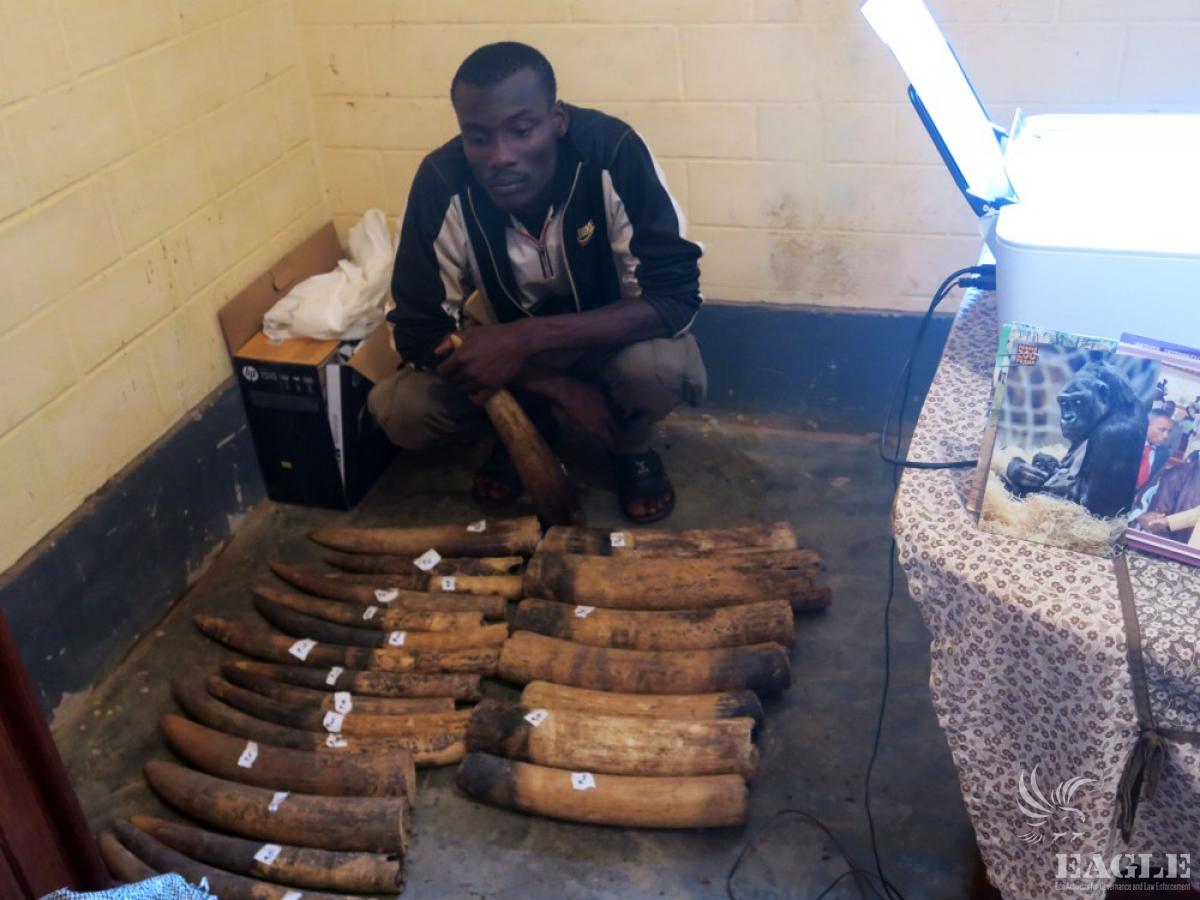
Following phenomenal success in Cameroon and now operating in eight additional countries, Drori recently renamed his group the EAGLE (Eco Activists for Governance and Law Enforcement) Network.
“We have put more than 1,300 major traffickers behind bars to date, many of them very high public officials. One was the person in charge of all the wildlife in his country,” Drori, 40, tells ISRAEL21c from his current home base in Nairobi.
“We now have a major wildlife trafficker arrested and imprisoned almost every day.”
In the month of July alone, EAGLE operations led to the arrest of nine traffickers in Uganda, including two army officers, and the recovery of hippo and elephant ivory, pangolin scales and python skins; four ivory and elephant tail traffickers in Gabon; and three ivory traffickers each in Togo and Senegal, among others.
Money vs. animals
Targeting wildlife traffickers rather than poachers is equivalent to targeting drug traffickers rather than street pushers, Drori explains.
“Illegal trafficking is organized crime. Poaching is just an effect. People keep talking about the poachers because they’re more visible, while the real problem is that the cartels are too powerful. It has little to do with actual animals; it’s more about money.”
Many of the public officials arrested for wildlife trafficking are also involved in drug and arms cartels and money laundering.
Under the direction of Drori – the only Israeli in the NGO — the EAGLE Network uses donor funds to hire select teams of six to 13 people in each of nine countries: Cameroon, the Republic of Congo and Gabon in Central Africa; Benin, Togo, Guinea and Senegal in West Africa; and Uganda and Madagascar in East Africa.
“It keeps expanding. We get far more requests than we can handle,” says Drori, whose book The Last Great Ape tells the story of his evolution from adventurer to anti-corruption crusader.
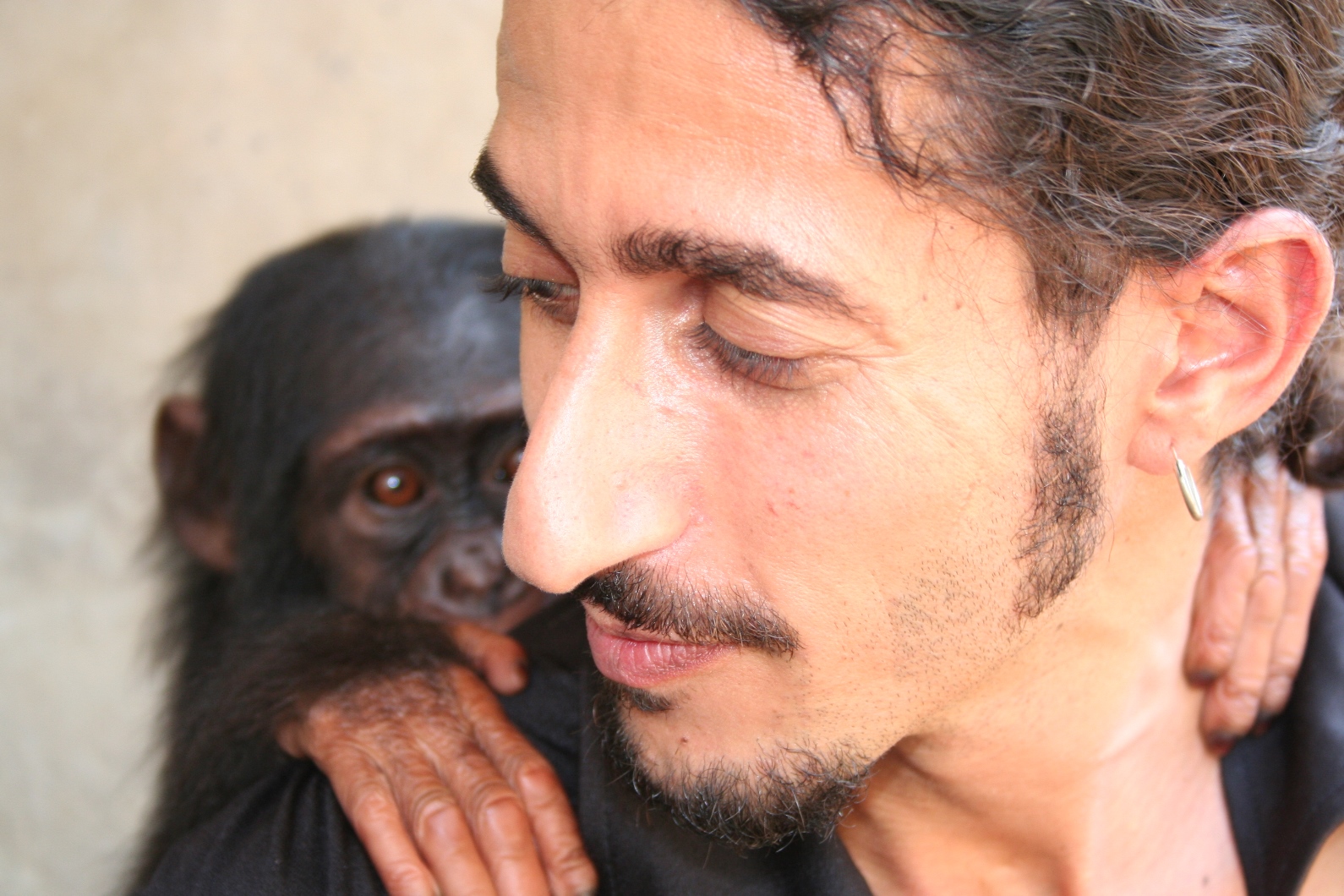
Drori has won multiple awards including the Interpol Ecomessage Award, the Duke of Edinburgh Conservation Medal and the Condé Nast Traveler Environment Award.
‘Most of the awards we won are about our ability to build a new model of a law-enforcement NGO,” he says. “We have a 98 percent prosecution rate because we make sure every case is airtight. We have a media team to make sure we have wide reporting on every arrest so people feel the law is being applied and we can create deterrence.”
It’s front-page news when Drori’s efforts get a Cameroon magistrate disbarred or a Gabon governor sent to prison. “We focus on wildlife but it’s one of many fights I’ve led. The broader fight is getting activism going in Africa.”
Anatomy of a sting operation
The day before speaking with ISRAEL21c, Drori was in a gas-station restaurant in Senegal along with his local operatives and legal advisers. A long undercover investigation of three suspected ivory traffickers was about to bear fruit.
The EAGLE agent had slowly gained the trust of the trio, which manufactures and exports bangles from poached ivory. The agent had arranged to buy their contraband at a controlled location chosen to minimize possible violence. As always, EAGLE’s country manager briefed local police and wildlife officers and prepared them for the arrest.
“We are not the ones putting on the handcuffs, but we have to take the police by the hand and manage the arrest operation because 85% of the time we intercept a corruption attempt such as bribery,” says Drori.
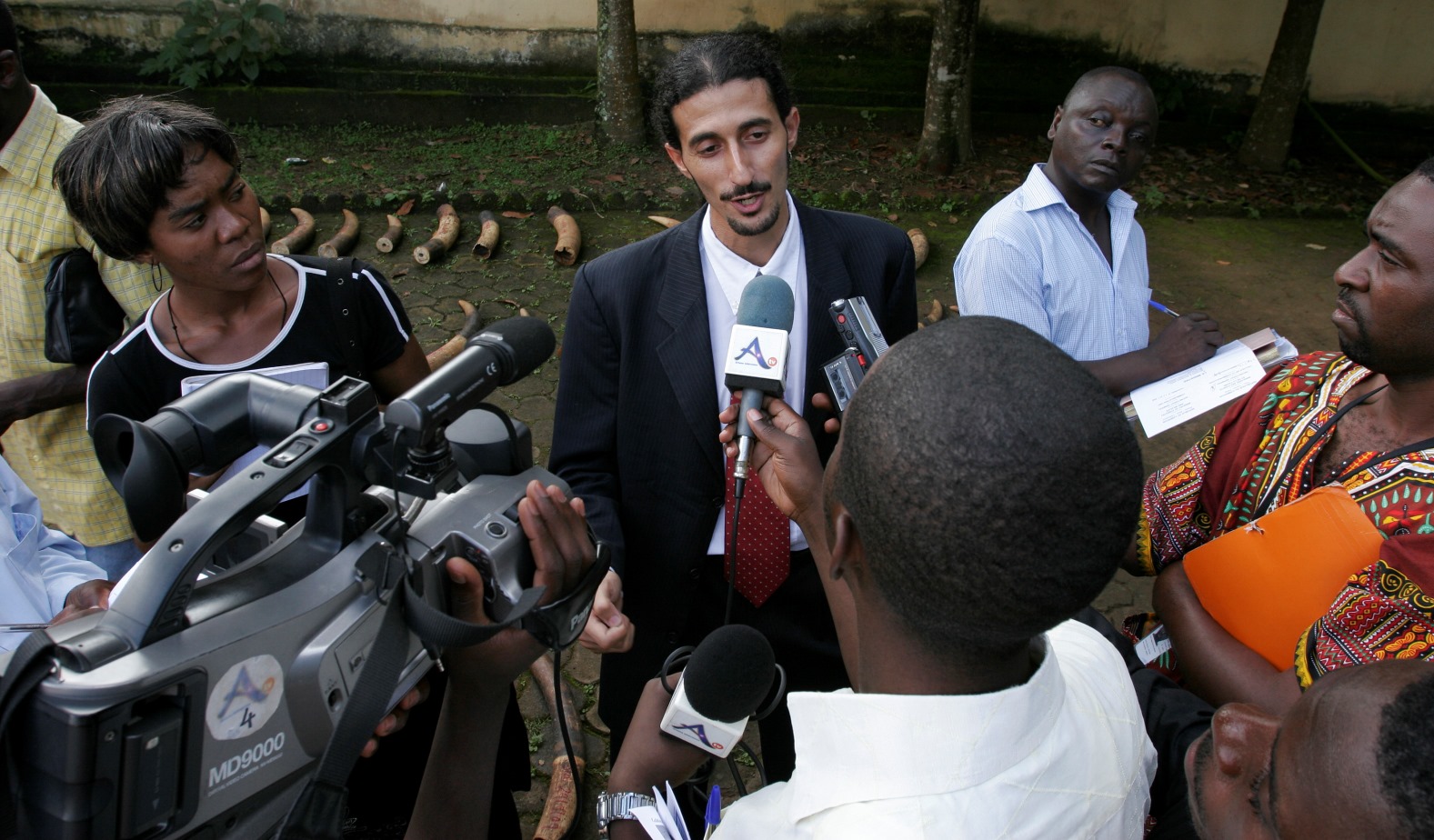
The first trafficker arrived with a black plastic bag, refusing to show the agent what was inside. He had to be cajoled to enter the restaurant and call his accomplices. After a tense half hour, the bad guy put the bag beneath his chair and went to the bathroom, enabling the agent to confirm that 138 ivory bangles were in the bag. All three traffickers eventually were arrested on the spot without incident.
“I’ve had so many arrest operations and it doesn’t get any easier,” says Drori. “You’re always nervous; people’s lives are in your hands. I always know I can lose someone. We have many threats and attempts on the lives of our team members. The stress is there all the time.”
Prosecuting and jailing the criminals is another lengthy process because 80% of all the court cases involve deals and bribes, says Drori.
A ripple of hope
EAGLE Network’s model of integrating the fight against corruption with wildlife conservation interests people across the world in relation to causes from conservation to human rights. Drori devised manuals about his methodology, lectures widely and is often interviewed in the media.
“Unlike NGOs in general, we build all we do on elite teams of nationals motivated to better their future and shape their country,” he says. “For them it’s not a job but a fight. They work 24/7 and have many hardships but they do it because they want to make their country better.”
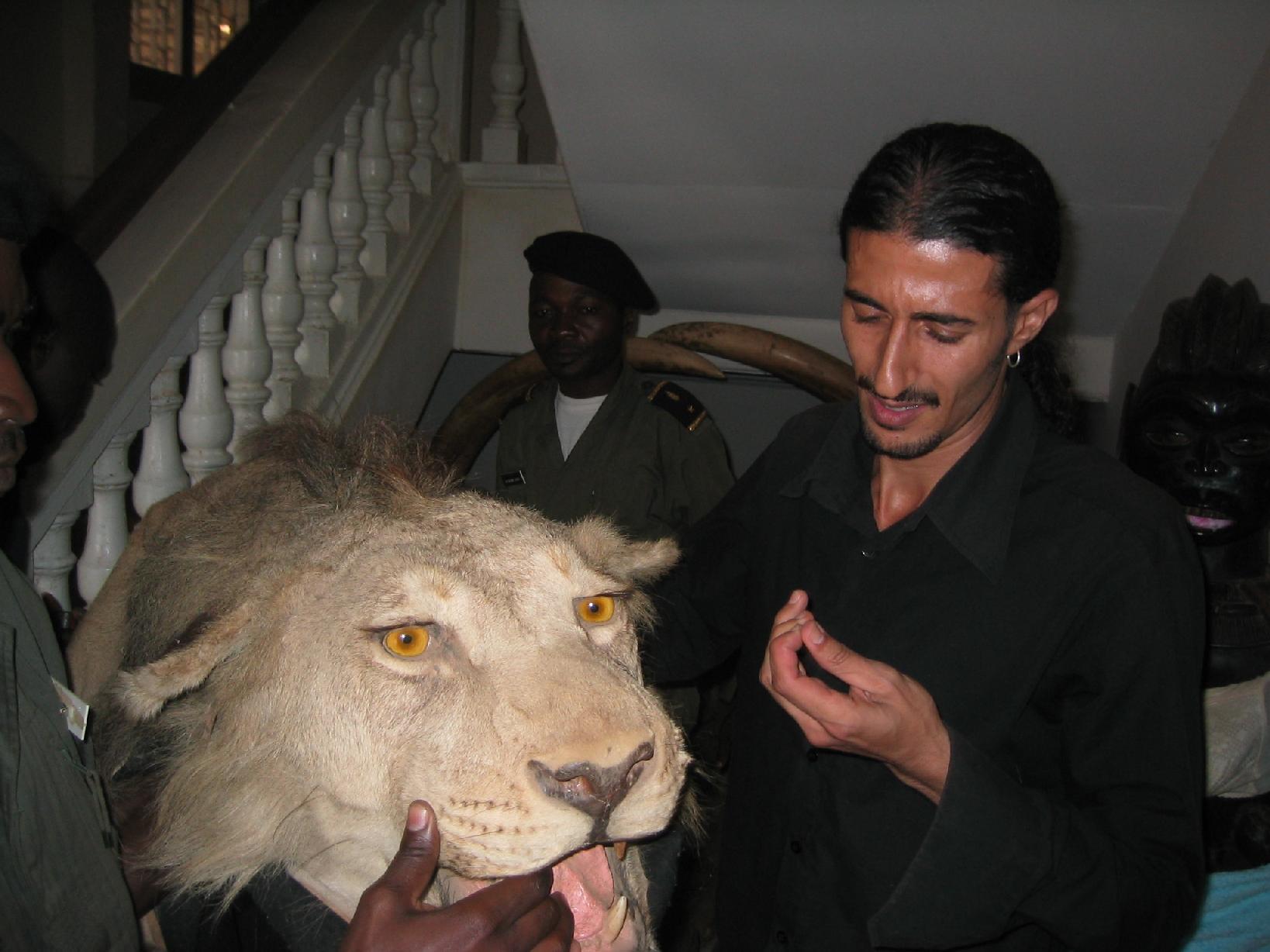
The impact goes beyond saving animals.
“By taking on a dysfunctional system that the citizens do not have faith in and don’t think it’s possible to change, it creates a ripple of hope,” says Drori.
“If you manage to get one law applied you can get others applied. If you can get one corrupt official in jail you can get others in jail. We use wildlife as an entry point to fight against corruption.”
For more information, click here.




